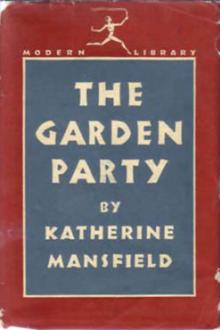The Witness, Grace Livingston Hill Lutz [the little red hen ebook .TXT] 📗

- Author: Grace Livingston Hill Lutz
Book online «The Witness, Grace Livingston Hill Lutz [the little red hen ebook .TXT] 📗». Author Grace Livingston Hill Lutz
Germany; Or Than It Was For Nicholas I To Crush The Hungarian Revolution In
1849, In The Interest Of Francis Joseph; Or Than It Was For Bismarck To
Rush To The Aid Of Alexander Ii In Putting Down The Polish Insurrection In
1863.
The Democrats Of Russia Knew, Moreover, That, In Addition To The Natural
Affinity Which Served To Bind The Two Autocracies, The Romanov And
Hohenzollern Dynasties Had Been Closely Knit Together In A Strong Union By
Years And Years Of Carefully Planned And Strongly Wrought Blood Ties. As
Isaac Don Lenine Reminds Us In His Admirable Study Of The Russian
Revolution, Nicholas Ii Was More Than Seven-Eighths German, Less Than
One-Eighth Of His Blood Heritage Being Romanov. Catherine The Great, Wife
Of Peter Iii, Was A Prussian By Birth And Heritage And Thoroughly
Prussianized Her Court. After Her--From 1796 To 1917--Six Czars Reigned In
Russia, Five Of Whom Married German Wives. As Was Inevitable In Such
Circumstances, The Russian Court Had Long Been Notoriously Subject To
German Influences And Strongly Pro-German In Its Sympathies--By No Means
Chapter 4 Pg 26Small Matter In An Autocratic Country. Fully Aware Of Their Advantage, The
Kaiser And His Ministers Increased The German Influence And Power At The
Russian Court By Encouraging German Nobles To Marry Into Russian Court
Circles. The Closing Decade Of The Reign Of Nicholas Ii Was Marked By An
Extraordinary Increase Of Prussian Influence In His Court, An Achievement
In Which The Kaiser Was Greatly Assisted By The Czarina, Who Was, It Will
Be Remembered, A German Princess.
Naturally, The German Composition And Character Of The Czar's Court Was
Reflected In The Diplomatic Service And In The Most Important Departments
Of The Russian Government, Including The Army. The Russian Secret Service
Was Very Largely In The Hands Of Germans And Russians Who Had Married
German Wives. The Same Thing May Be Said Of The Police Department. Many Of
The Generals And Other High Officers In The Russian Army Were Either Of
German Parentage Or Connected With Germany By Marriage Ties. In Brief, The
Whole Russian Bureaucracy Was Honeycombed By German Influence.
Outside Official Circles, Much The Same Condition Existed Among The Great
Landowners. Those Of The Baltic Provinces Were Largely Of Teutonic Descent,
Of Course. Many Had Married German Wives. The Result Was That The Nobility
Of These Provinces, Long Peculiarly Influential In The Political Life Of
Russia, Was, To A Very Large Degree, Pro-German. In Addition To These,
There Were Numerous Large Landowners Of German Birth, While Many, Probably
A Big Majority, Of The Superintendents Of The Large Industrial
Establishments And Landed Estates Were German Citizens. It Is Notorious
That The Principal Factories Upon Which Russia Had To Rely For Guns And
Munitions Were In Charge Of Germans, Who Had Been Introduced Because Of
Their High Technical Efficiency.
In View Of These Facts, And A Mass Of Similar Facts Which Might Be Cited,
It Was Natural For The Democrats Of Russia To Identify Germany And German
Intrigue And Influence With The Hated Bureaucracy. It Was As Natural As It
Was For The German Influence To Be Used Against The Democratic Movement In
Russia, As It Invariably Was. Practically The Entire Mass Of Democratic
Opinion In Russia, Including, Of Course, All The Socialist Factions,
Regarded These Royal, Aristocratic, And Bureaucratic German Influences As A
Menace To Russia, A Cancer That Must Be Cut Out. With The Exception Of A
Section Of The Socialists, Whose Position We Shall Presently Examine, The
Mass Of Liberal-Thinking, Progressive, Democratic Russians Saw In The War A
Welcome Breaking Of The German Yoke. Believing That The Victory Of Germany
Would Restore The Yoke, And That Her Defeat By Russia Would Eliminate The
Power Which Had Sustained Czarism, They Welcomed The War And Rallied With
Laughed Aloud. "You Won't Find No Such Thing As Gas
Around This Part O' Town. There's About An Inch Of Candle Up On That
Shelf. The Distric' Nurse Left It There. I Was Thinkin' Mebbe I'd Get
Mr. Widymer To Light It Fer Me When He Come, An' Then The Night
Chapter 4 Pg 27Wouldn't Seem So Long. It's Awful, When You're Sufferin' To Have The
Nights Long."
He Groped Till He Found The Shelf And Lit The Candle. By Degrees The
Flickering Light Revealed To Him A Small Bare Room With No Furniture
Except A Bed, A Chair, A Small Stove, And A Table. A Box In The Corner
Apparently Contained A Few Worn Garments. Some Dishes And Provisions
Were Huddled On The Table. The Walls And Floor Were Bare. The District
Nurse Had Done Her Level Best To Clear Up, Perhaps, But There Had Been
No Attempt At Good Cheer. A Desolate Place Indeed To Spend A Weary Night
Of Suffering, Even With An Inch Of Candle Sending Weird Flickerings
Across The Dusky Ceiling.
His Impulse Was To Flee, But Somehow He Couldn't. "Here's This
Medicine," He Said. "Where Do You Want Me To Put It?"
The Woman Motioned With A Bony Hand Toward The Table. "There's A Cup And
Spoon Over There Somewhere," She Said, Weakly. "If You Could Go Get Me A
Pitcher Of Water And Set It Here On A Chair I Could Manage To Take It
Durin' The Night."
He Could See Her Better Now, For The Candle Was Flaring Bravely. She Was
Little And Old. Her Thin, White Hair Straggled Pitifully About Her
Small, Wrinkled Face, Her Eyes Looked As If They Had Been Burned Almost
Out By Suffering. He Saw She Was Drawn And Quivering With Pain, Even Now
As She Tried To Speak Cheerfully. A Something Rebellious In Him Yielded
To The Nerve Of The Little Old Woman, And He Put Down His Impatience.
Sure He Would Get Her The Water!
She Explained That The Hydrant Was Down On The Street. He Took The
Doubtful-Looking Pitcher And Stumbled Out Upon Those Narrow, Rickety
Stairs Again.
Way Down To The Street And Back In That Inky Blackness! "Gosh! Thunder!
The Deuce!" (He Didn't Allow Himself Any Stronger Words These Days.)
Was This The Kind Of Thing One Was Up Against When One Majored In
Sociology?
"I Be'n Thinkin'," Said The Old Lady, Quaveringly, When He Stumbled,
Blinking, Back Into The Room Again With The Water, "Ef You Wouldn't Mind
Jest Stirrin' Up The Fire An' Makin' Me A Sup O' Tea It Would Be Real
Heartenin'. I 'Ain't Et Nothin' All Day 'Cause The Pain Was So Bad, But
I Think It'll Ease Up When I Git A Dose Of The Medicine, And P'r'aps I
Might Eat A Bite."
Courtland Was Appalled, But He Went Vigorously To Work At That Fire,
Although He Had Never Laid Eyes On Anything So Primitive As That Stove
In All His Life. Presently, By Using Common Sense, He Had The Thing
Going And A Forlorn Little Kettle Steaming Away Cheerfully.
The Old Woman Cautioned Him Against Using Too Much Tea. There Must Be At
Least Three Drawings Left, And It Would Be A Long Time, Perhaps, Before
She Got Any More. Yes, There Was A Little Mite Of Sugar In A Paper On
Chapter 4 Pg 28"There's Some Bread There, Too--Half A Loaf 'Most--But I Guess It's
Pretty Dry. You Don't Know How To Make Toast I 'Spose," She Added,
Wistfully.
Courtland Had Never Made Toast In His Life. He Abominated It. She Told
Him How To Hold It Up On A Fork In Front Of The Coals And He Managed To
Do Two Very Creditable Slices. He Had Forgotten His Own Supper Now.
There Was Something Quite Fresh And Original In The Whole Experience. It
Would Have Been Interesting To Have Told The Boys, If There Weren't Some
Features About It That Were Almost Sacred. He Wondered What The Gang
Would Say When He Told Them About Wittemore! Poor Wittemore! He Wasn't
As Nutty As They Had Thought! He Had Good In His Heart! Courtland Poured
The Tea, But The Sugar-Paper Had Proved Quite Empty When He Found It;
Likewise A Plate That Had Once Contained Butter.
The Toast And Tea, However, Seemed To Be Quite Acceptable Without Its
Usual Accessories. "Now," He Said, With A Long Breath, "Is There
Anything Else You'd Like Done Before I Go?--For I Must Be Gettingred A Free Outlet To The Warm
Waters Of The Mediterranean, Which Alone Could Give Her Free Access To The
Great Ocean Highways. Therefore They Hoped That One Result Of A Victorious
War By The Entente Against The Central Empires, In Which Russia Would Play
An Important Part, Would Be The Acquisition Of Constantinople By Russia.
Thus The Old Vision Of The Czars Had Become The Vision Of An Influential
And Rising Class With A Solid Basis Of Economic Interest.
Iii
As In Every Other Country Involved, The Socialist Movement Was Sharply
Divided By The War. Paradoxical As It Seems, In Spite Of The Great Revival
Of Revolutionary Hope And Sentiment In The First Half Of The Year, The
Socialist Parties And Groups Were Not Strong When The War Broke Out. They
Were, Indeed, At A Very Low State. They Had Not Yet Recovered From The
Reaction. The Manipulation Of The Electoral Laws Following The Dissolution
Of The Second Duma, And The Systematic Oppression And Repression Of All
Radical Organizations By The Administration, Had Greatly Reduced The
Socialist Parties In Membership And Influence. The Masses Were, For A Long
Time, Weary Of Struggle, Despondent, And Passive. The Socialist Factions
Meanwhile Were Engaged In An Apparently Interminable Controversy Upon
Theoretical And Tactical Questions In Which The Masses Of The
Working-People, When They Began To Stir At Last, Took No Interest, And
Which They Could Hardly Be Supposed To Understand. The Socialist Parties
And Groups Were Subject To A Very Great Disability In That Their Leaders
Were Practically All In Exile. Had A Revolution Broken Out, As It Would
Chapter 4 Pg 29




Comments (0)